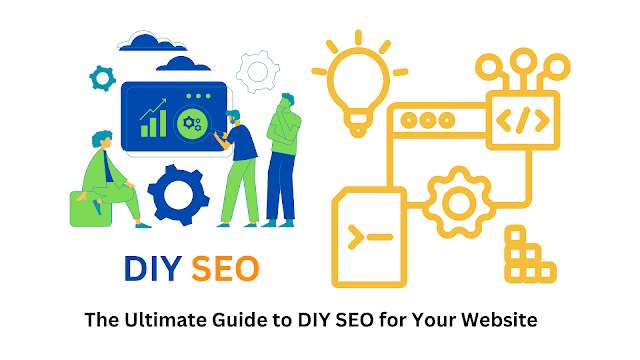Introduction
Search engine optimization (SEO) is essential for driving organic traffic to your website and increasing its visibility on search engine result pages (SERPs). While hiring SEO experts may not be feasible for small business owners or ecommerce sites with limited budgets, there are several DIY SEO strategies and tools that can help you improve your website's rankings. In this comprehensive guide, we will explore six essential steps to achieve effective DIY SEO and boost your website's visibility.
Step 1: Set Your Organic Search Baseline
To improve your website's search engine rankings, it is crucial to understand your current standing. Start by using tools like Google Search Console to evaluate your website's performance on Google Search. Analyze metrics such as impressions, clicks, and click-through rates to determine your organic search baseline. Additionally, examine your competitors' websites using tools like Semrush's Organic Research to gain insights into their performance and identify areas for growth.
Step 2: Research Keywords and Relevant Search Queries
Keywords are the foundation of a successful SEO campaign. They are the words or phrases that users enter into search engines to find information or products. Conduct keyword research using tools like Semrush's Keyword Magic Tool to identify relevant keywords aligned with your content and target audience's needs. You can also use the Keyword Gap tool to discover keywords that your competitors are ranking for but you are not. This research will inform your content creation and optimization strategies.
Step 3: Publish Optimized Content
Crafting high-quality, optimized content is vital for effective SEO. Incorporate primary keywords naturally into your text without resorting to keyword stuffing. Use the primary keyword in the H1 tag and include logical secondary keywords that complement the primary keyword. Enhance the value of your content by including relevant images, infographics, or videos. Optimize your titles, headings, and meta tags using plugins or tools like WordPress. Ensure that your new content replaces old content on existing pages to avoid duplicate content issues.
Step 4: Build High-Quality Backlinks
Backlinks, or links from other websites pointing to your website, are crucial for establishing your website's value and authority. They act as votes of confidence for your content. Regularly monitor your backlinks using tools like Semrush's Backlink Analytics to assess the quality of your backlink profile. Seek out high-authority domains with relevant content and consider implementing a link building campaign using tools like Semrush's Link Building Tool to acquire more valuable backlinks.
Step 5: Address Technical Issues
Technical SEO involves optimizing your website so that search engines can easily discover, crawl, and index your pages. Conduct a thorough technical audit of your website using tools like Semrush's Site Audit to identify and resolve technical issues. Ensure that your website is accessible, mobile-friendly, and has fast page loading speeds. Fix any errors, warnings, or notices identified during the audit to enhance your website's SEO health and overall performance.
Step 6: Stay Informed and Adapt
SEO is a continuously evolving field, with search engines frequently updating their algorithms. Stay up to date with the latest SEO trends and best practices by following industry bloggers, reading reputable blogs like Google Search Central, and taking advantage of educational resources like Semrush's blog and Academy courses. Remain flexible and adapt your SEO strategies to align with the ever-changing landscape of search engine optimization.
Conclusion
By following these six steps, you can effectively implement DIY SEO strategies to improve your website's visibility and organic search rankings. Set your organic search baseline, conduct keyword research, publish optimized content, build high-quality backlinks, address technical issues, and stay informed about the latest SEO trends. Remember, SEO is an ongoing process, so regularly monitor and adjust your strategies to achieve long-term success. With dedication and the right tools, you can optimize your website and drive valuable organic traffic.












0 Comments